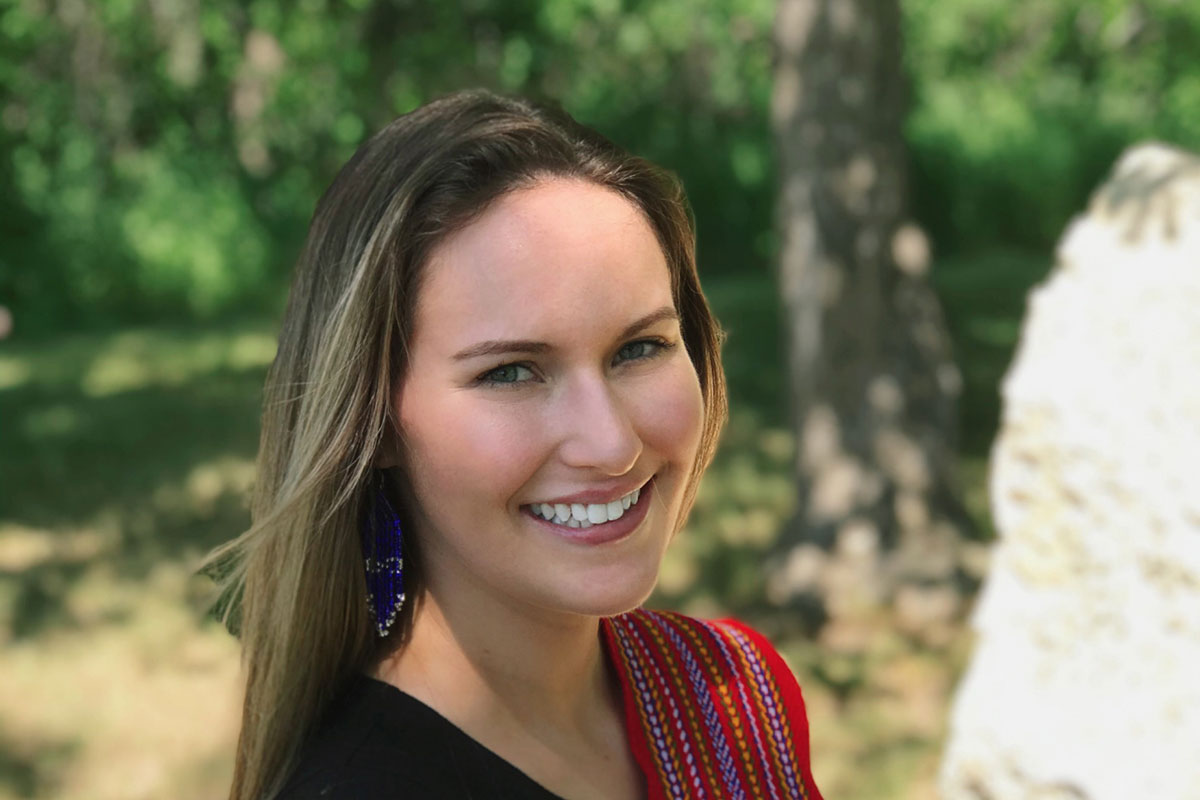
Julia Hutlet [BA/20]
Alumni POV: Indigenous voices as equals, not tokens
It has been 154 years since Confederation, and just decades since Indigenous people in Canada obtained the right to vote and run in federal elections. As of 2019, there are only 10 active Indigenous members of Parliament in the House of Commons — only four of them are Indigenous women. But, on March 8, I had the opportunity to give Indigenous women a voice in the House of Commons.
Daughters of the Vote is a program by Equal Voice that began in 2017 to mark the 100th anniversary of some women obtaining the right to vote in Canada. In 2021, the event was moved online due to the COVID-19 pandemic. In a typical year, 338 delegates (one from each federal riding in Canada) are selected to participate in this political summit in Ottawa, which this year included myself as well as three University of Manitoba students. As the delegate representing Winnipeg North, I had the opportunity to give a statement in the House of Commons, something that only 35 delegates were selected for.
In my statement I discussed the under-representation of Indigenous women in the House of Commons, and how Indigenous women are more often discussed as statistics of colonial violence than for our successes. We truly need Canadians to recognize the significance of the Missing and Murdered Indigenous Women and Girls (MMIWG) movement, and how the Calls for Justice are not being acknowledged by politicians.
It is also clear that Indigenous women need a seat at the table when nothing is changing without our voices in these settler colonial institutions. I believe that the most effective way to address the inclusion of Indigenous women as legal and political professionals in a dominant-male ideology, is to invite Indigenous women to join these movements and fields without creating an environment of tokenism.
Tokenism needs to be avoided, because it puts significant social pressure on Indigenous women to be “that diverse woman.” Instead, we should be making sure that there are multiple Indigenous women included in the political and legal fields, so they do not feel the effects of imposter syndrome while representing the “underdog’s voice” in this society. By giving Indigenous women the means to participate in this narrative, it is encouraging for others because they see someone using their voice to represent Indigenous women — and also invites them to become more involved and represent the community.
This is how I decided to get involved in politics. I remember taking “Introduction to Canadian Government” for my minor in political studies at UM and learning about party politics, and the clear tokenism of Jody Wilson-Raybould. It was in this class that I knew I wanted to be involved in law or politics, because I wanted to see a Canada where the voices of Indigenous women are heard and acknowledged not as tokens but as equals and respected politicians and judges.
So, I am calling on Indigenous women to run for government — whether it is student government, Indigenous governments, municipal, provincial or federal governments. I want to see the representation, and I want Indigenous people to be common in these roles instead of tokens. I also want Indigenous students to know that they should not be afraid to speak out on important issues in their communities — their voices matter.
Throughout Daughters of the Vote, I aimed to represent my riding and province by speaking about Indigenous representation, tokenism within settler colonial institutions, and with my fellow delegates, the issue of MMWIG. I want these issues to get traction, and I want them to change.
Julia Hutlet [BA/20] is proudly Métis from St. Andrews and Letalier, Manitoba. While at UM, she developed essential leadership skills from the Indigenous Circle of Empowerment (ICE) program which she used to serve as a Manitoba 150 Youth Ambassador, bringing awareness to the Manitoba Métis community and the importance of the Red River Settlement, on the 150th anniversary of Manitoba joining Confederation. She is now pursuing a law degree at the University of British Columbia’s Peter A. Allard School of Law.






